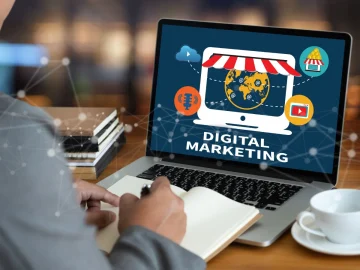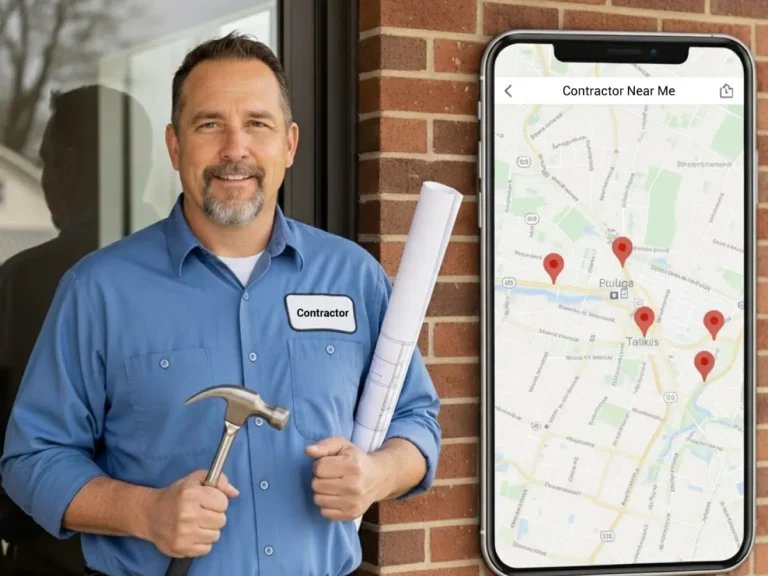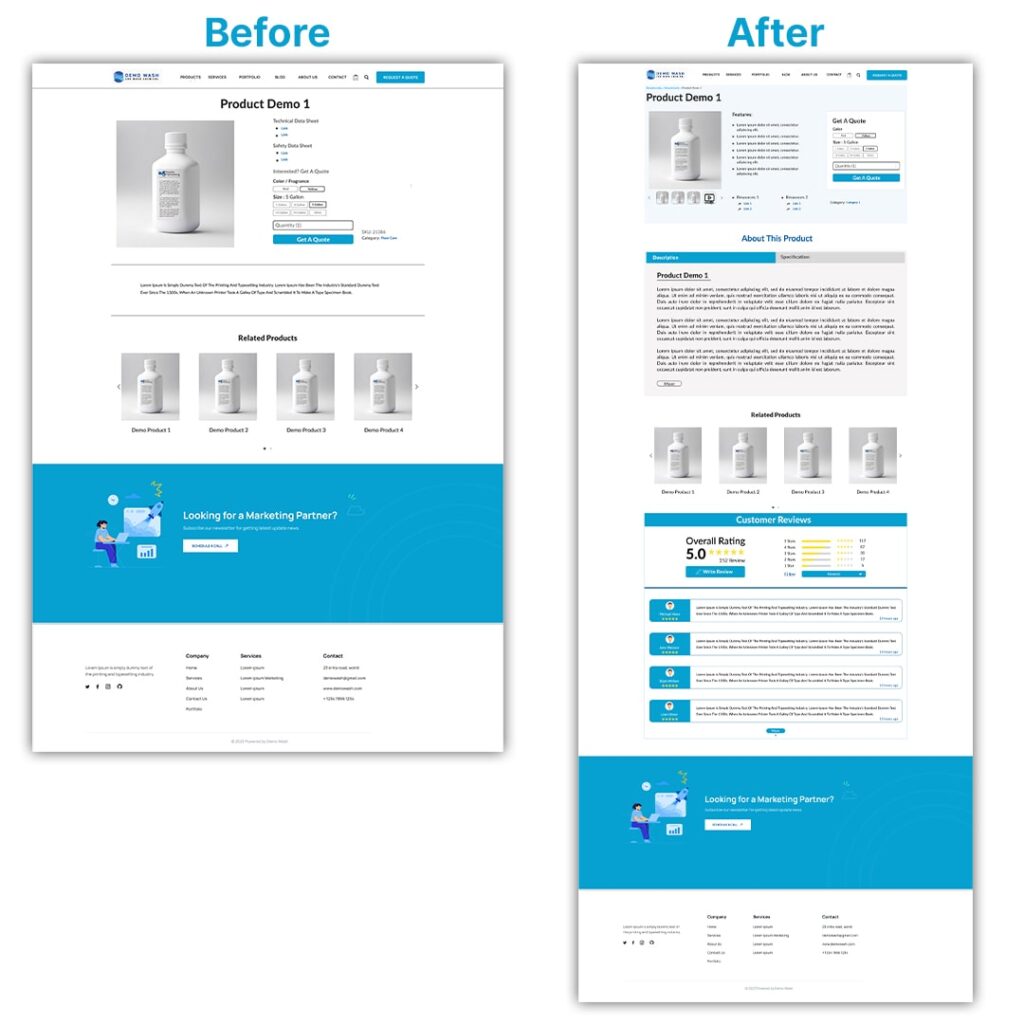Are you ready to take your small business to the next level? If so, know that you are in the right place.
After all, in today’s world, if your small business isn’t online, you are missing out—big time.
Whether you are a local coffee shop, a boutique store, or a service provider, the internet is where your customers are looking for you. That’s where digital marketing for small businesses comes in!
It’s not just about having a website; it’s about getting your business in front of the right people, at the right time, and on the right platforms.
And the good news? You don’t need a huge budget or a marketing degree to get started. This guide will break down everything you need to know to boost your online presence and reach more customers, even with a limited budget.
What is Digital Marketing for Small Businesses?
In simple terms, digital marketing is the use of online platforms and tools to promote your business and connect with your audience
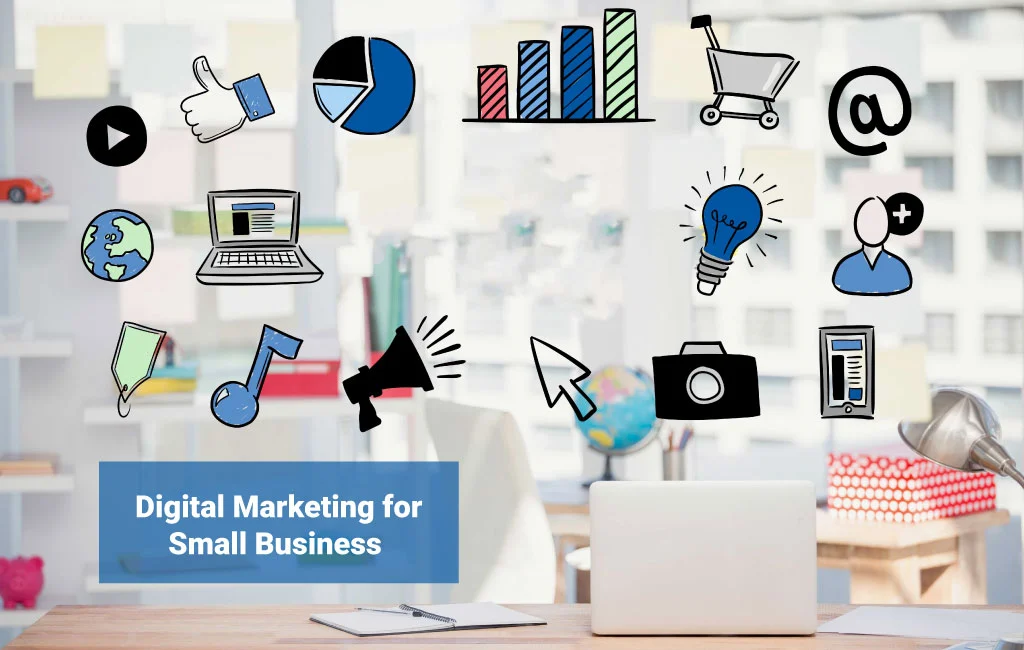
For small businesses, this means using channels like social media, email, websites, and search engines to increase visibility and attract customers. Unlike traditional marketing, which might rely on billboards or flyers, digital marketing allows small businesses to engage with their audience in real-time and target specific customer groups.
For instance, if you run a local coffee shop, you could use Google Ads to target people searching for “best coffee near me” or share tempting photos of your lattes on Instagram.
The Importance of Digital Marketing for Small Businesses
The importance of digital marketing for small businesses cannot be overstated. With more people turning to the internet to find products and services, it’s more than crucial for small businesses to establish a strong online presence.
Here’s why digital marketing is so important for small businesses:
Reach a Broader Audience
Gone are the days when small businesses were limited by geography or budget in reaching their customers. Digital marketing allows you to connect with people across the globe, but more importantly, it helps you reach targeted audiences.
With the right use of SEO (Search Engine Optimization), social media marketing, and paid advertising, you can ensure that your brand is seen by the people who are most likely to need your products or services. Whether they are local or halfway around the world, digital marketing makes sure that your message gets in front of the right eyes.
Level the Playing Field with Bigger Brands
One of the biggest advantages of digital marketing for small businesses is that it levels the playing field. You don’t need a massive budget to compete with big-name brands.
Instead, a well-crafted digital marketing strategy can help your small business show up in search results right alongside larger companies, drive more traffic to your website, and build a loyal following.
Tools like Google Ads or Facebook advertising allow you to create targeted campaigns that reach your ideal customers without spending a fortune. This means you can make your mark in the marketplace, regardless of your size.
Build Trust and Long-Term Relationships
Small businesses thrive on personal connections, and digital marketing enhances this by allowing you to engage with your customers in meaningful ways.
For example, through social media interactions, content marketing, and email campaigns, you can communicate directly with your audience, answer questions, and provide value long before they make a purchase.
This builds trust and creates stronger relationships that lead to long-term loyalty. When customers feel connected to a brand, they are more likely to keep coming back, turning a one-time purchase into ongoing business.
Cost-Effective and Measurable
Compared to traditional marketing methods like print ads or billboards, digital marketing is incredibly cost-effective. You don’t need a huge budget to get started, and you can scale your efforts as your business grows.
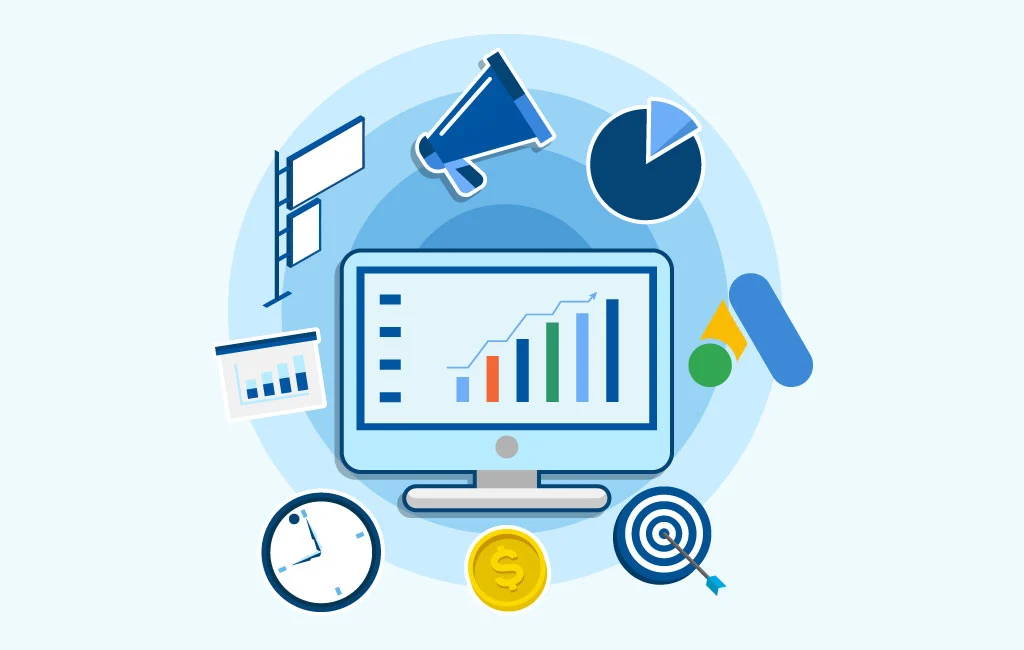
What’s even better is that digital marketing is highly measurable. You can track every click, view, and conversion, giving you real-time insights into what’s working and where you can improve. This makes it easy to tweak your strategies for maximum impact and ensures you are getting the best return on your investment.
Flexibility to Adapt
The digital world is constantly changing, and that might seem overwhelming.
But the truth is, this gives small businesses an advantage. Digital marketing allows you to adapt quickly. You can experiment with new tactics, pivot when necessary, and stay up-to-date with the latest trends.
Whether it’s trying out a new social media platform, leveraging influencer marketing, or adjusting your SEO strategy based on the latest algorithm updates, you have the flexibility to move with the market.
Comparing Digital and Traditional Marketing: Which is Better for Small Businesses?
When it comes to marketing, small businesses face an important question: digital marketing or traditional marketing? Both have their strengths, but the right choice depends on your business goals, audience, and budget.
So, let’s dive into the key differences between digital marketing vs traditional marketing and figure out which approach might be better for your small business:
What is Traditional Marketing?
Traditional marketing refers to the old-school methods like print ads, billboards, TV commercials, and radio spots. These strategies are familiar, and they still work well for reaching local audiences or creating broad awareness.
However, traditional marketing tends to be more expensive and less targeted. And you are reaching a large audience, but not always the right one.
What is Digital Marketing?
On the flip side, digital marketing is all about online strategies like social media, SEO, email marketing, and Google Ads. It allows businesses to reach a specific audience with precision.
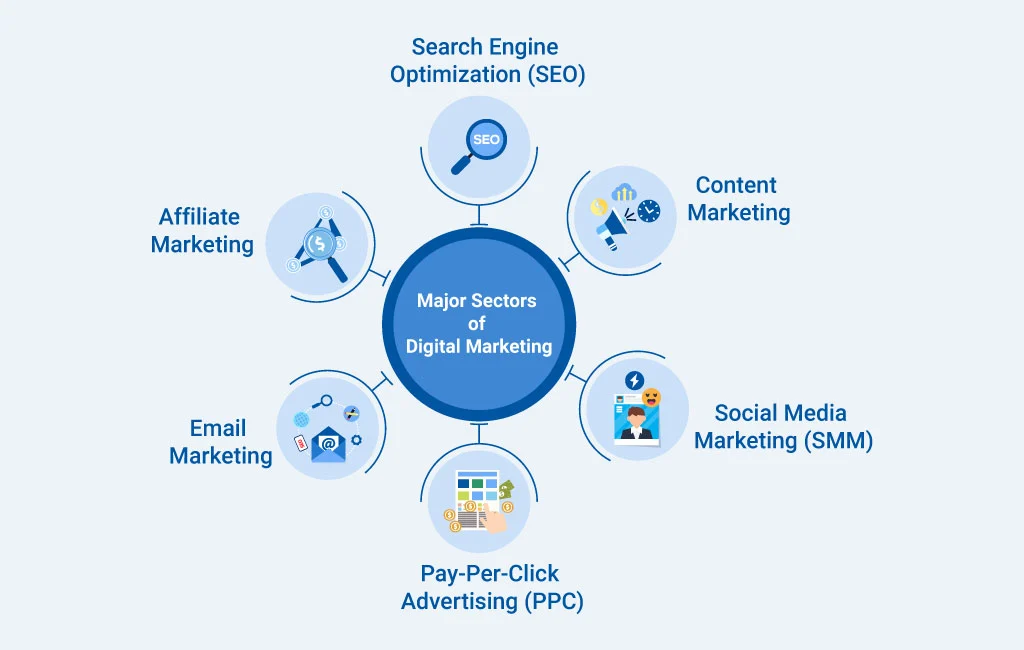
That is, you can engage with your ideal customers where they spend most of their time—online. Plus, digital marketing is far more cost-effective and provides real-time analytics, so you can see what’s working and tweak your campaigns instantly.
Reach and Targeting
With traditional marketing, you are casting a wide net, hoping to catch the right people. While this can sometimes work for local businesses, it often means you are paying for exposure to people who may not be interested.
Digital marketing, on the other hand, lets you narrow your focus to exactly who you want to reach. Whether it’s based on location, interests, or search behavior, you have far more control over who sees your ads or content.
Cost and ROI
Budget is a major concern for small businesses, and this is where digital marketing literally shines. Traditional marketing channels like TV ads or magazine spreads can be pricey, and there’s no guarantee they will generate a return on investment (ROI).
In contrast, digital marketing platforms allow you to start small, track every dollar spent, and make data-driven decisions to improve your campaigns. This level of cost control and measurability is invaluable for small businesses looking to maximize ROI.
Flexibility and Adaptability
One of the key benefits of digital marketing is the ability to adapt quickly. Did a campaign fall flat? You can adjust it in real time.
With traditional marketing, you are often locked into longer contracts with less room for flexibility. Digital marketing gives you the freedom to experiment, pivot, and respond to changes in consumer behavior much faster.
Which is Better for Small Businesses?
While both digital and traditional marketing have their place, digital marketing for small businesses often offers more return. It’s targeted, affordable, and adaptable—perfect for businesses looking to grow their presence without spending a fortune.
That said, combining both strategies can also be effective, especially if you are trying to reach a local audience or build brand awareness.
Getting Started with Digital Marketing for Small Businesses
Starting with digital marketing might feel overwhelming, but with the right steps, you can build a solid foundation and start seeing results. Here’s a simple guide on how to start digital marketing for small businesses and set it up for success:
Define Your Goals
Before you jump into the digital marketing pool, make sure to take a moment to think about what you want to achieve. Are you looking to boost brand awareness, drive more traffic to your website, or increase sales? Defining clear, measurable goals will help you choose the right strategies and keep you focused on what matters most.
Know Your Audience
Understanding your target audience is crucial for any marketing effort. Who are your ideal customers? What are their interests, behaviors, and online habits?
By creating detailed buyer personas, you can tailor your digital marketing efforts to meet the needs and preferences of your audience. This will make your campaigns more effective and relevant.
Build a Strong Online Presence
Your website is your digital storefront, so make sure it’s welcoming and easy to navigate. Invest in search engine optimization (SEO) to improve your site’s visibility on search engines and attract organic traffic. Additionally, set up profiles on relevant social media platforms to engage with your audience and promote your brand.
Choose the Right Channels
Digital marketing for small businesses offers a variety of channels, each with its own strengths. Below is a quick overview of some options:
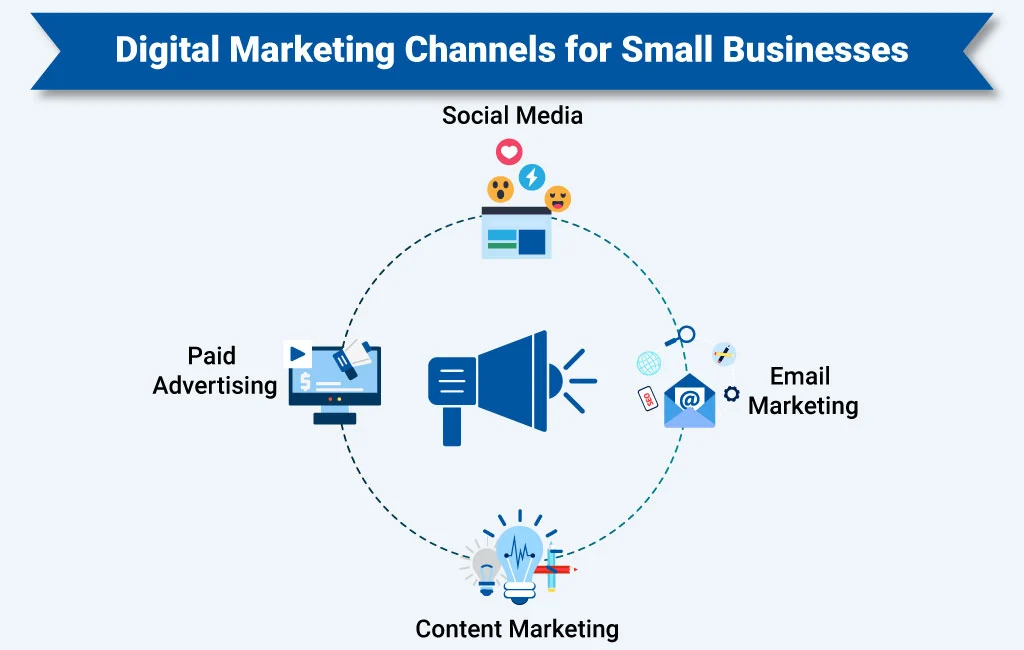
- Social Media: Great for engaging with your audience, sharing content, and running ads.
- Email Marketing: Perfect for nurturing leads and staying in touch with your customers.
- Content Marketing: Helps establish your expertise and attract potential customers through valuable content.
- Paid Advertising: Provides targeted reach and can drive immediate traffic to your site.
Start Creating Content
Content is king in digital marketing. Hence, opt to create high-quality, relevant content that resonates with your audience.
This could be blog posts, social media updates, videos, or infographics. Besides, your content should address your audience’s pain points, answer their questions, and provide value.
Set a Budget and Monitor Performance
Digital marketing for small businesses doesn’t have to break the bank, but it’s essential to set a budget and stick to it. Allocate funds based on your goals and the channels you choose.
Once your campaigns are up and running, use analytics tools to track performance and make data-driven decisions. Regularly review your metrics to see what’s working and where you can improve.
Top Digital Marketing Strategies for Accelerating Growth
With so many options out there, it’s important to focus on tactics that will deliver real results and help you reach your business goals. Here’s a rundown of some of the top growth strategies for small businesses that can make a big impact:
Search Engine Optimization (SEO)
SEO is all about improving your website’s visibility on search engines like Google. And by optimizing your site for relevant keywords, creating high-quality content, and building backlinks, you can attract more organic traffic and rank higher in search results.
It is a long-term investment that pays off by bringing in steady, targeted traffic to your site.
Content Marketing
Having a solid content marketing strategy can set your business apart from the competition. Therefore, aim to create valuable, engaging content that addresses your audience’s pain points and interests.
This could be blog posts, how-to guides, videos, or infographics. Not only does great content help with SEO, but it also builds trust and establishes your brand as an authority in your industry.
Social Media Advertising
Social media platforms like Facebook, Instagram, and LinkedIn offer powerful advertising tools that can help you reach your target audience with precision.
Plus, social media ads allow you to target users based on demographics, interests, and behaviors, making it easier to connect with potential customers. All you have to do is experiment with different ad formats and strategies to find what works best for your business.
Utilize Email Marketing Campaign
Email marketing remains one of the most effective ways to nurture leads and build relationships with your customers. And with the help of these email campaigns, you can send personalized messages, special offers, and updates directly to your audience’s inbox.

However, segment your email list to tailor your messages and increase engagement, and track your results to continuously improve your campaigns.
Invest in Pay-Per-Click (PPC) Advertising
PPC advertising, such as Google Ads, is a great way to drive immediate traffic to your website. You only pay when someone clicks on your ad, which means you are investing in actual engagement.
With PPC, you can also target specific keywords and demographics, making it easier to reach potential customers who are actively searching for products or services like yours.
Focus on Building Customer Relationships
Strong customer relationships are essential for long-term growth. And you need to use digital marketing to stay connected with your audience through personalized interactions.
Hence, engage with customers on social media, respond to reviews, and offer exceptional customer service. Building a loyal customer base can lead to repeat business and valuable word-of-mouth referrals.
Track and Analyze Your Results
To ensure your digital marketing for small businesses strategies are driving growth, it’s crucial to track and analyze your results. Use analytics tools to monitor key metrics like website traffic, conversion rates, and engagement levels.
Besides, regularly reviewing this data will help you identify what’s working, where you can improve, and how to adjust your strategies for even better results.
Effective Offline Marketing Tactics for Small Businesses
While digital marketing for small businesses often takes center stage, offline marketing can still play a crucial role in growing your small business. Many traditional methods are tried-and-true ways to connect with your local audience, build relationships, and boost brand visibility.
Let’s explore some of the most effective offline marketing for small businesses tactics that can complement your digital efforts and drive real results:
Business Cards and Flyers
A well-designed business card is a simple yet professional way to leave a lasting impression during face-to-face interactions. Hence, make sure your card includes key information like your website and social media profiles, making it easy for potential customers to connect with you online.
Similarly, flyers can be distributed in local hotspots, community events, or even mailed to nearby homes and businesses. Also, you can use eye-catching designs and clear messaging to promote special offers, new products, or upcoming events.
Network at Local Events
Attending or hosting local events is a fantastic way to get the word out about your business. Be it community fairs, trade shows, or networking meetups, these events offer opportunities to build personal connections.

You can show your products or services, share your expertise, and engage with potential customers face-to-face. Plus, this type of marketing builds trust, which can be harder to achieve through digital channels alone.
Use Direct Mail Campaigns
Direct mail remains a highly effective offline marketing tool, especially when personalized. Sending postcards, brochures, or special offers directly to your target audience can make a significant impact.
That is, direct mail allows you to reach potential customers right at their doorstep, cutting through the noise of crowded inboxes and online ads.
Sponsor Local Sports Teams or Events
Sponsoring a local sports team or community event is a great way to give back while getting your brand in front of a local audience.
Your business name and logo on jerseys, banners, or event programs provide consistent visibility and can foster positive associations with your brand. Moreover, it helps you create goodwill within the community, which can turn into loyal customers over time.
Build Partnerships with Local Businesses
Teaming up with other local businesses can be a win-win strategy. For example, you can cross-promote each other’s services or products, offer bundled deals, or co-host events.
These partnerships help you reach a broader audience while strengthening ties within your community. Here, the ultimate key is finding businesses that align with your target market and offer complementary (not competing) services.
Host Workshops or Educational Sessions
Positioning your business as a trusted expert in your field can go a long way. Hosting workshops or educational sessions at your store, office, or a community center allows you to provide value while subtly promoting your business.
Be it a free workshop on home improvement tips, fitness classes, or financial advice, these sessions help you engage with your audience and build credibility.
Word-of-Mouth Marketing
Encouraging happy customers to refer their friends and family to your business is both cost-effective and powerful.
Also, offering incentives like referral discounts, loyalty programs, or special perks for repeat customers can amplify this effect, turning your existing customers into brand ambassadors.
How Much Should Small Business Owners Invest in Digital Marketing?
Determining the right budget for digital marketing can feel tricky, but it doesn’t have to be. A general rule of thumb is to allocate around 7-10% of your revenue to marketing, with a good chunk of that going toward digital efforts.
The amount varies depending on your goals, industry, and competition. Start small, measure results, and scale up as needed. Here, the ultimate key is to invest smartly, ensuring every dollar counts toward building your online presence and driving growth. After all, smart investments lead to big rewards!
Key Tips for Effective Digital Marketing in Small Businesses
Digital marketing for small businesses can be a game-changer, but getting it right requires focus and strategy. Whether you are just starting out or refining your approach, these digital marketing tips for success will help you achieve results:
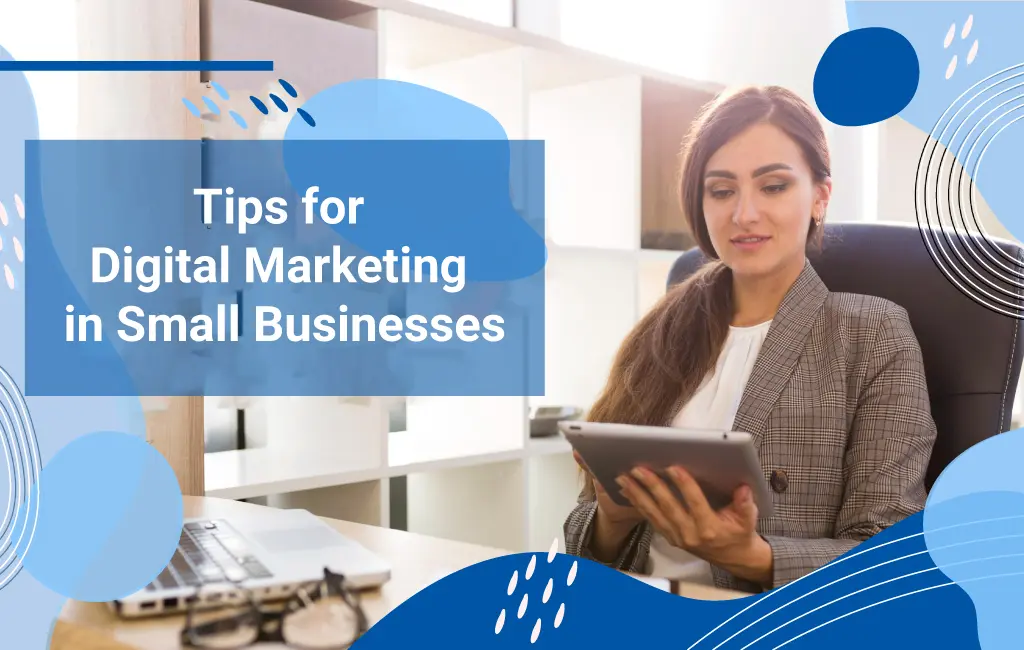
- Define Your Target Audience: Understand who your ideal customers are to create tailored marketing strategies.
- Optimize for Local SEO: Ensure your business is easily found by local customers through local search optimization.
- Build a User-Friendly Website: Your website is often the first impression—make it clean, fast, and mobile-friendly.
- Leverage Social Media: Use the platforms your audience frequents to engage and promote your brand regularly.
- Focus on Content Marketing: High-quality, relevant content will attract and engage your audience while boosting SEO.
- Use Email Marketing Effectively: Build a list and send valuable content or offers to keep your audience engaged.
- Monitor Analytics Regularly: Track your digital marketing metrics to understand what’s working and where to improve.
- Set a Realistic Budget: Allocate your budget wisely, balancing cost-effective strategies like SEO with paid ads.
- Test and Adjust Campaigns: Continuously test different approaches to see what resonates most with your audience.
- Build Positive Customer Reviews: Encourage reviews to boost your online reputation and credibility.
Addressing Common Digital Marketing Challenges for Business Owners
Digital marketing offers huge potential, but it comes with challenges that can be quite tough for business owners to handle. From keeping up with trends to managing resources, these obstacles can be frustrating.
Here’s how to tackle the most common digital marketing challenges:
Keeping Up with Trends
The digital world is always evolving, and staying updated can feel overwhelming. To keep up, follow industry blogs, attend webinars, or work with an expert who can help you navigate changes in platforms and algorithms.
Limited Resources
Many small businesses face limited time and budgets. The key is to focus on high-impact strategies. Instead of being active on every platform, choose the ones where your audience is most engaged, and use automation tools to save time.
Tracking ROI
Measuring the ROI of your efforts isn’t always simple. You will need to use tools like Google Analytics to track performance and make data-driven decisions about where to invest more time and money.
Generating Quality Leads
Attracting and converting the right audience can be tough. To improve lead generation, focus on targeted ads and compelling content that appeals to specific customer segments.
Consistent Engagement
Staying active online can be hard. Plan your posts in advance with a content calendar, and use automation to keep your social media and email marketing consistent.
Competing in a Crowded Market
Standing out in a competitive market requires creativity. Highlight what makes your business unique and consider using video, influencer marketing, or interactive content to engage your audience.
Evaluating the Success of Your Small Business Digital Marketing Efforts
To know if your digital marketing for small businesses is working, it’s essential to track the right digital marketing metrics for small businesses. These following key metrics will help you understand where your strategy is succeeding and where improvements are needed:
Website Traffic and User Behavior
Tools like Google Analytics give insights into your website traffic—where visitors come from, how long they stay, and what they do on your site. Hence, look for trends in traffic growth and user engagement to see if your content is resonating.
Conversion Rates
Tracking how many visitors turn into leads or customers is crucial. Your conversion rates measure the effectiveness of your calls-to-action, landing pages, and overall website experience.
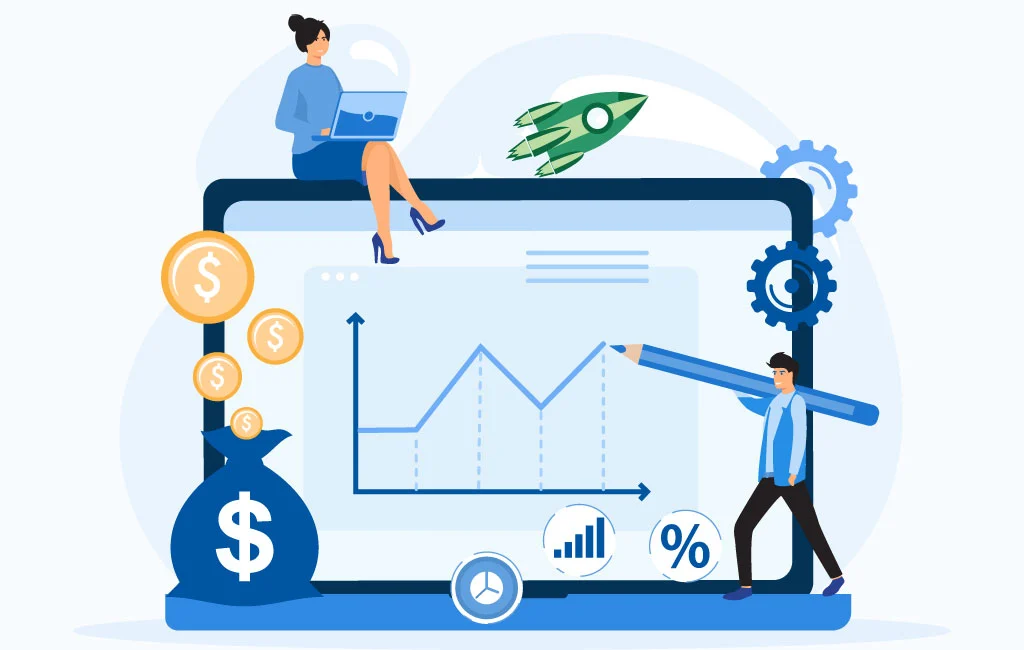
Social Media Engagement
It’s not just about having followers—it’s about interaction. Likes, shares, comments, and clicks show if your social media content is connecting with your audience and driving traffic.
Email Open and Click-Through Rates
Your email open rates and click-through rates indicate how engaging your subject lines and content are. Higher rates mean your messages are catching attention and driving action.
Return on Investment (ROI)
Finally, track your ROI to see if your digital marketing efforts are paying off. Also, compare your marketing spend to the revenue generated to determine overall success.
Conclusion
Digital marketing is no longer an option for small businesses—it’s a must. And by following the above-mentioned strategies in this blog, you will not only stay competitive but also create lasting connections with your customers.
From social media and SEO to email marketing and content creation, digital marketing for small businesses offers tons of opportunities to grow, scale, and thrive.
So, what are you waiting for? Take that first step, and soon, you will see your business reaching new heights in the digital world.

